From 1897 to 1917, Storyville was a legally sanctioned prostitution district just outside of New Orleans’ historic Vieux Carré. Storyville very quickly gained a national reputation not only for its brothels but for the saloons and restaurants that catered to its many denizens, both white and black. The owners of the brothels, saloons, and cribs would hire musicians to entertain their clients. These musicians were the early practitioners of Jazz, with the freedom of musical exploration that came in a place like “The District,” and with the inspiration that its frenzied goings-on provided.
One of the places where the colored musicians who played in the District would gather after gigs to jam and to play for their own people was a barroom known as “The Big 25,” which was located at 135 Franklin Street (now Crozat), at the corner of Iberville Street. Between performances and after gigs, the musicians would frequent the “25” to plan for their next gig or put together a combination. All of the greats of the era would congregate at the Big 25 – King Oliver, Kid Ory, Jelly Roll Morton, Louis Armstrong, Manuel Manetta, Big Eye Nelson – among others. Recounting his first meeting Jelly Roll Morton, Jazz virtuoso Manuel Manetta recalled in the 1950s: “That’s where you’d meet all the people. 25 was the headquarters.”
The “Big 25” was managed by Arnold Dufauchard. Arnold Dufauchard was a plasterer by trade who was born on 4 February 1865 to Jean-Baptiste Dufauchard, a carpenter, and Honorine Dufauchard, a homemaker. Arnold Dufauchard worked as a plasterer and seems to have been closely affiliated with many of the men who were leaders in the Fourth Ward Republican Club. In 1909, he became one of the incorporators and members of the Board of Directors of the Peoples Industrial Life Insurance Company, which was founded by his friend, Walter L. Cohen.
Arnold was first married on 4 June 1888 to Hermina Gannanie, who died on 8 June 1900, at the young age of twenty-eight. They had one son, Arnold Benjamin Dufauchard, who was born on 10 January 1895. Arnold was later remarried on 27 June 1902 to Henrietta Weeks.
The famous “Big 25,” which first opened about 1891, was owned by Johnny Lala, who despite the name was no relation to the more famous “Pete Lala,” who also ran a well-known establishment in Storyville, which catered to white patrons. Beginning in January 1920, with the implementation of the Eighteenth Amendment, it would have seemed as though Prohibition would put an end to the storied “Big 25.” Prohibition was hard to enforce and kept more than a thousand federal agents busy enforcing the Volstead Act, which was the enforcement legislation that accompanied the Eighteenth Amendment.
On March 22, 1933, President Roosevelt signed an amendment to the Volstead Act, known as the Cullen–Harrison Act, allowing the manufacture and sale of light wines and beer that was 4% alcohol by volume. Previously any beverage with greater than 0.5% alcohol was banned.
The photograph featured above was taken in the “Big 25” to commemorate the first “legal” beers served there since the start of Prohibition. The novelty of the occasion was that drinking and good times had never stopped. The “Big 25” remained a very popular barroom and eatery throughout its history, always as it was once called, “rendezvous of the sporting people.”
In addition to serving as a director of the Peoples Life Insurance Company, Arnold Dufauchard carried out his trade in contracting and owned several race horses, including Flight, Lena M., and Dark Simon. He managed at least one prizefighter, Harry Wills, who was a three-time Colored Heavyweight Champion of the World. Dufauchard resided with his wife and son, Arnold, Jr., in the home he owned at 1928 Iberville Street. He was a member of the Société des Amis Inseparables (Inseparable Friends Benevolent Association) and the Knights and Ladies of Honor of America.
Arnold Dufauchard, Sr. died on 19 December 1936 at the age of seventy-one. He was buried from Saint Katherine’s Church on Tulane Avenue and was interred in Saint Louis Cemetery No. 3, near many of his lifelong friends and business associates from the Fourth Ward. His only surviving son, Arnold Benjamin Dufauchard, died in 1954, leaving nine children: Arnold, Salvadore, Lloyd, Alvin, Warren, Eldridge, Leon, Bernice (Brown), and Amy (Wynne).
Sources: The Louisiana Weekly, 29 April 1933; The New Orleans Item, 8 January 1932, page 14; The Daily States, 8 September 1917, page 8; The New Orleans Item, 20 December 1936, page 2; O.C.W. Taylor, Crescent City Pictorial (1922), Call No. F379.N59.N37, Amistad Research Center; Interview with Manuel Manetta [transcribed], 21 March 1957, Hogan Jazz Archives, Tulane University.
Jari C. Honora
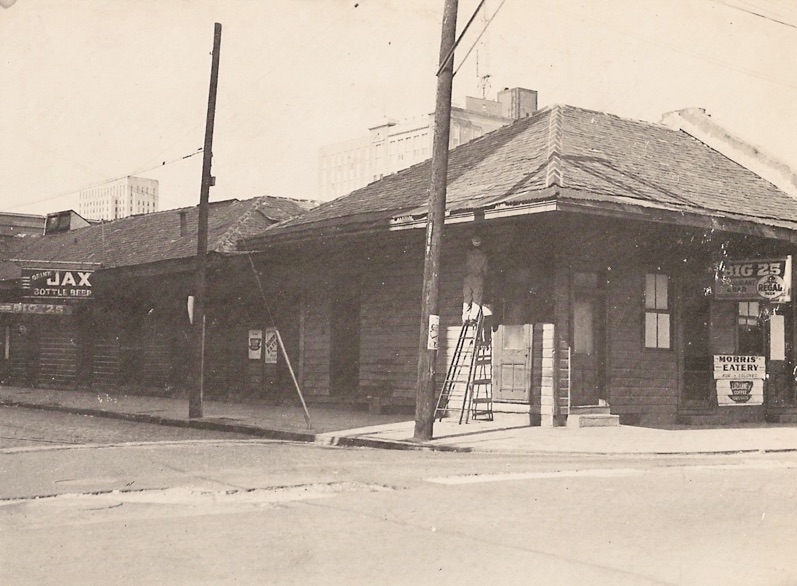
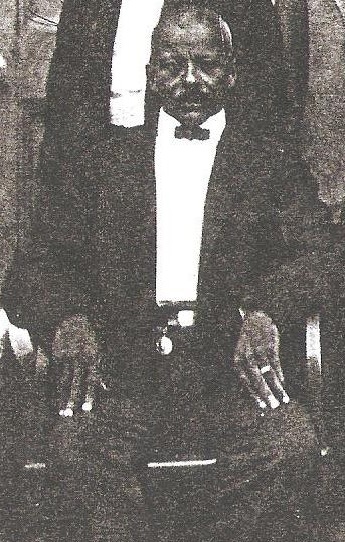
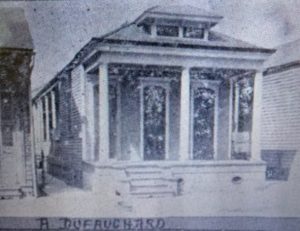
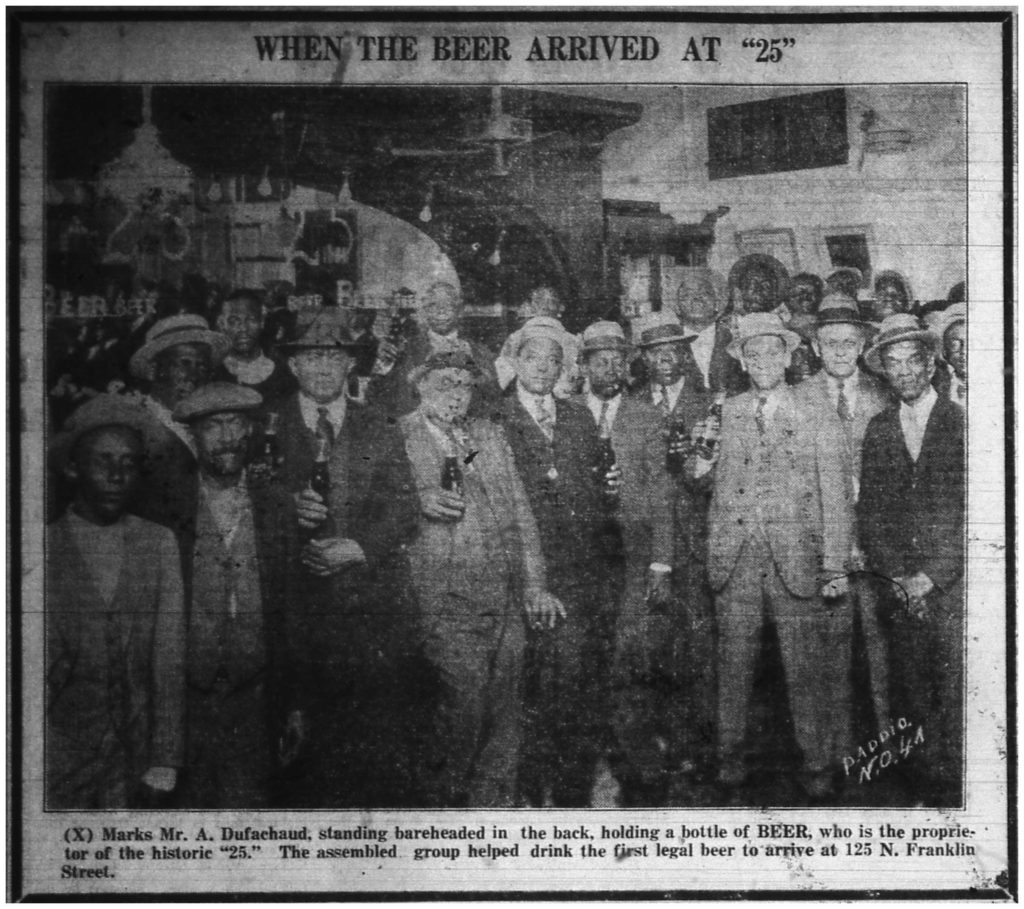
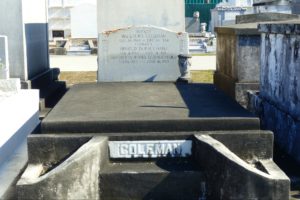



In 1910, the Rev. Peter W. Clark, my great grandfather, served as pastor of Union Chapel Methodist Episcopal Church at the intersection of Bienville and Marais. By 1897, Union Chapel had become the only church left in Storyville. Church members often had to cope with harassment, vulgar behavior and sordid surroundings. In 1914, city police barred Union Chapel from offering Sunday School, claiming the law forbade the presence of children in the “lewd” district. This was the fatal blow that closed down the church.
Great article, very well articulated.
Very informative, Jari. Thanks!
Some very good unknown history
Interesting article Jari, thanks for posting.
Wow! This was my great, great uncle Arnold!
Thanks for visiting CreoleGen!
If you are a son or grandson of the first Eldridge Dufauchard, then the gentleman featured is your great or great-great-grandfather (not uncle).
Was Eldridge Dufauchard related to Arnold Sr?
Excellent and informative. Thanks Jari
Walter A. Dufauchard, my grandfather, was also a descendant of Arnold Dufauchard, Sr.
I have information which would be helpful to you. My mother who is now deceased (Mildred Bradley Dufauchard). Her father is Arnold Dufauchard;s other son. His name is Walter Dufauchard. He passed away 2 years (1938) after his dad Arnold Sr. passed.
It’s been quite a while since I have visited this site. Your mother Mildred was my dad’s sister. My dad was Walter Joseph Dufauchard. His dad was Walter Arthur Dufauchard. Yes, I’ve known for many years what my dad never discussed with us and for a good reason. Thank you for your input.
I know it’s been a while but can you explain to me about my mom and your dad being related
Just decided to enter my last name on the internet and came across this article. I would love to learn more, especially about my dad’s family, Preston DuFauchard.